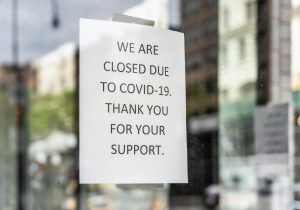 The frequency and severity of cyber incidents, particularly ransomware attacks targeting businesses and critical infrastructure organizations, have been on the increase and are unlikely to subside anytime soon. Higher claim counts and loss severity have led to significant and continuing increases in cyber insurance losses. Insurers have made up for this increased risk profile by passing the costs onto consumers in two ways—by both increasing premiums and attempting to narrow coverage.
The frequency and severity of cyber incidents, particularly ransomware attacks targeting businesses and critical infrastructure organizations, have been on the increase and are unlikely to subside anytime soon. Higher claim counts and loss severity have led to significant and continuing increases in cyber insurance losses. Insurers have made up for this increased risk profile by passing the costs onto consumers in two ways—by both increasing premiums and attempting to narrow coverage.
Articles Posted in Business Interruption
How Capri Holdings Ltd. Could Provide a Path Past Mama Jo’s
A recent article in Law360 shines a spotlight on an Amended Complaint filed by Pillsbury’s award-winning Insurance Recovery and Advisory Group in a significant insurance recovery action seeking coverage for COVID-19 business interruption. In it, the Amended Complaint is described as a “beefed-up filing” where our colleagues have “unleashed a deluge of scientific studies on COVID-19.” The article suggests that the “the arguments outlined in Tuesday’s filing could be a potential avenue around Mama Jo’s v. Sparta Insurance Co., a heavily cited decision in which the Eleventh Circuit held that policyholders must show their properties required physical repairs to constitute direct physical loss. A number of insurers have pointed to that ruling in shooting down COVID-19 insurance cases.”
For more information on this or related issues, please contact Joseph Jean, Scott Greenspan, Benjamin Tievsky or Janine Stanisz.
Responding to the Texas Winter Storm Crisis: Business Interruption Claims
As those who experienced the Texas winter storm crisis are likely discovering, vital questions of coverage and recovery linger—and in some cases, first appear—long after the ice has melted and power has been restored. In “Texas Winter Storms: Evaluating Business Interruption Claims Following a Large-Scale Disaster,” Joseph D. Jean, and Tamara D. Bruno examine some of the challenging questions about business interruption insurance coverage raised in the aftermath of the storms.
Reminder: If You Have a COVID-19 Insurance Claim, Be Aware of Impending Policy Deadlines
 The United States declared a national emergency in response to COVID-19 on March 13, 2020, and states quickly followed with stay-at-home orders that impacted businesses and institutions nationwide. It has now been nine full months since the pandemic emerged in the United States and businesses began to shut down in the face of contamination and civil authority orders effecting restrictions on access to and use of their premises.
The United States declared a national emergency in response to COVID-19 on March 13, 2020, and states quickly followed with stay-at-home orders that impacted businesses and institutions nationwide. It has now been nine full months since the pandemic emerged in the United States and businesses began to shut down in the face of contamination and civil authority orders effecting restrictions on access to and use of their premises.
Recent Court Decisions Reflect Possibility of Coverage for Losses Suffered by Colleges and Universities Due to COVID-19
 Like many businesses, colleges and universities across the country have had to dramatically alter their operations in response to the coronavirus pandemic. Most students completed the spring 2020 semester through online instruction after campuses closed in response to rising infection rates and government shutdown orders. According to the Chronicle of Higher Education, roughly one-quarter of institutions of higher education are providing instruction this fall semester either fully or primarily in person, one-quarter are using a hybrid model, and the remainder operating fully or primarily online.
Like many businesses, colleges and universities across the country have had to dramatically alter their operations in response to the coronavirus pandemic. Most students completed the spring 2020 semester through online instruction after campuses closed in response to rising infection rates and government shutdown orders. According to the Chronicle of Higher Education, roughly one-quarter of institutions of higher education are providing instruction this fall semester either fully or primarily in person, one-quarter are using a hybrid model, and the remainder operating fully or primarily online.
Out of the COVID Frying Pan: Valuing Business Interruption Claims from Wildfires in a Pandemic
 One word that aptly describes the devastation that is 2020 is “relentless.” The COVID-19 pandemic has caused both personal and economic suffering throughout the world for over six months. Against the backdrop of the already devastating effects of COVID-19, several regions in the United States have recently experienced powerful storms and historically large wildfires. The wildfires in the western United States and Canada have been especially catastrophic this year—burning millions of acres, forcing evacuations, damaging air quality, and creating blankets of smoke extending over much of the country. The fires have destroyed homes and businesses and will lead to hundreds or thousands of insurance claims under homeowners, commercial property, and business interruption policies.
One word that aptly describes the devastation that is 2020 is “relentless.” The COVID-19 pandemic has caused both personal and economic suffering throughout the world for over six months. Against the backdrop of the already devastating effects of COVID-19, several regions in the United States have recently experienced powerful storms and historically large wildfires. The wildfires in the western United States and Canada have been especially catastrophic this year—burning millions of acres, forcing evacuations, damaging air quality, and creating blankets of smoke extending over much of the country. The fires have destroyed homes and businesses and will lead to hundreds or thousands of insurance claims under homeowners, commercial property, and business interruption policies.
What happens under First Party Property/Business Interruption insurance when more than one arguably covered cause of loss impacts a business at the same time?
The Production Company Behind Ben Affleck’s COVID-Stalled Film Sues to Protect Its Pre-COVID-19 Policy Coverages
 His daughter missing and a secret government program uncovered …
His daughter missing and a secret government program uncovered …
Ben Affleck’s detective thriller Hypnotic was next in line to be on the actor’s list of blockbuster films. That is, until the COVID-19 pandemic halted the film while it was still in pre-production. To insure against such business interruption risks and delay, Hypnotic’s production company, Hoosegow (Hypnotic) Productions Inc., had purchased a Film Producer’s policy from Chubb National Insurance Company.
Studio 417 Finds Potential Coverage for COVID-19 Losses Under the “Plain and Ordinary Meaning” of “Physical Loss or Physical Damage”

As the COVID-19 public health crisis continues to surge globally, insurers have closed ranks behind the position that commercial property policies are “not designed” to cover pandemic-related losses, including business interruption. But the various justifications they advance for this assertion often collapse under scrutiny of the relevant policy language. Insurers have taken an early stand on the threshold issue of whether the actual or threatened presence of coronavirus and/or COVID-19 can even trigger coverage as a matter of law, telling both their insureds and the courts that the virus’s presence does not constitute “physical loss of or damage to property,” the event typically required for property policies to respond.
Insurance Coverage Claims for Theft, Vandalism and Curfews

Many U.S. businesses face income losses from theft, vandalism and resulting curfew orders, which have affected numerous cities in recent days.
Commercial property insurance policies may provide coverage for these losses, which are and should be treated as a separate claim from pandemic-related losses. Property policies cover physical damage to property and, usually, also provide coverage for business interruption losses if certain conditions are met. Whatever position insurers may take on contamination from COVID-19, they cannot plausibly contest that shattered windows, broken fixtures and stolen merchandise are physical loss or damage. And, while insurance policies vary, typically there is business interruption coverage for “Civil Authority” orders, such as curfews requiring businesses to close. Nearly always, such coverage requires the existence of property damage within some limited geographic radius surrounding the policyholder’s location. This often ranges from one to 10 miles. So if your business is closed by a curfew order and, for example, a building down the block had its windows shattered by thrown bricks, or worse, there is every reason to submit a claim. Bear in mind that, depending on the wording of your policy, the trigger for Civil Authority coverage may not be limited to damage to buildings: it may apply to property within buildings and property in the street, potentially including vandalized vehicles. Think outside the box (store).
A Primer on Bringing First-Party Insurance Claims
 The profound impact of COVID-19 leading businesses to file first-party insurance claims is now well known. Further, insurance companies are systematically pushing back on potential coverage for COVID-19, with some issuing blanket coverage denials without investigation. In other words, this is not an ordinary claims environment. Against this backdrop, many policyholders are facing what may be their first significant insurance claim. This primer will familiarize such policyholders with the initial steps of the first-party insurance claims process. Whether a potential claim is related to COVID-19 or not, understanding the claims process is the best first step towards avoiding pitfalls and maximizing chances of recovery.
The profound impact of COVID-19 leading businesses to file first-party insurance claims is now well known. Further, insurance companies are systematically pushing back on potential coverage for COVID-19, with some issuing blanket coverage denials without investigation. In other words, this is not an ordinary claims environment. Against this backdrop, many policyholders are facing what may be their first significant insurance claim. This primer will familiarize such policyholders with the initial steps of the first-party insurance claims process. Whether a potential claim is related to COVID-19 or not, understanding the claims process is the best first step towards avoiding pitfalls and maximizing chances of recovery.
 Policyholder Pulse
Policyholder Pulse


